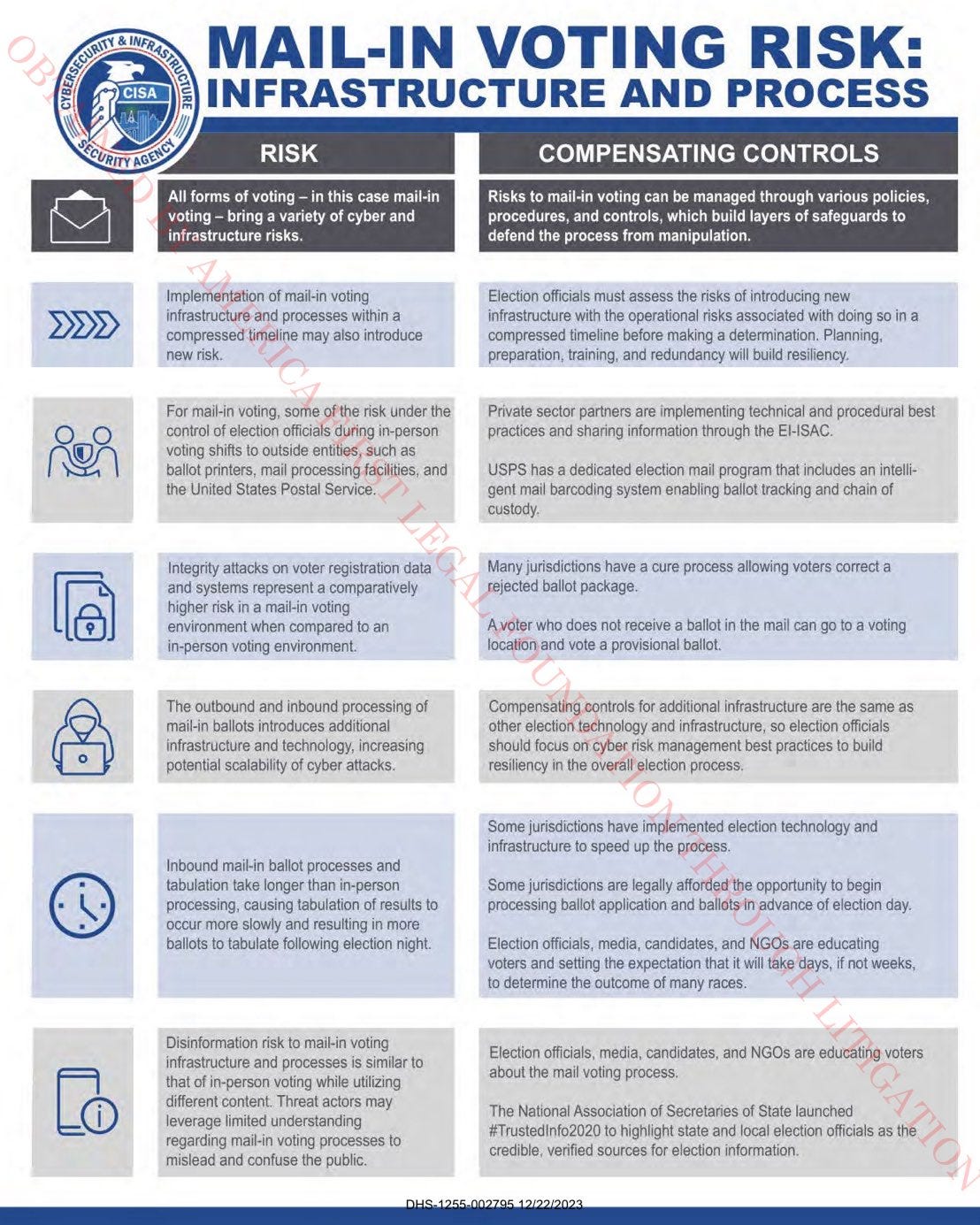New CISA docs show they knew mail-in-voting came with more risk than in-person-voting
AmericanFirst Legal sued CISA to obtain docs which lay out risks and mitigation plans
A lawsuit filed by AmericanFirst Legal against the CISA, the cybersecurity department of the DHS which is known to have colluded with Social Media and NGO’s to censor Americans speech online, has uncovered a document which shows they were fully aware of the security risks that came along with mail-in-voting.
Mail-in-voting was said to have been implemented during the pandemic as a means to mitigate public health risks for voters during the General Election.
We were told that Mail-in-Voting came with no inherent risk compared to in-person-voting, and that concerns expressed by many on the right were simply conspiracy theories being touted by uneducated, conspiratorial, and racist Trump supporters.
If our own intelligence community is fully aware of the INCREASED RISKS compared to in-person-voting, why would the White House, the media, and other officials, who were in favor of this unprecedented change to our election process, tell us there was none?
Additional risks include:
Implementation of mail-in voting infrastructure and processes within a compressed timeline may also introduce new risk.
For mail-in voting, some of the risk under the control of election officials during in-person voting shifts to outside entities, such as ballot printers, mail processing facilities, and the United States Postal Service.
Integrity attacks on voter registration data and systems represent a comparatively higher risk in a mail-in voting environment when compared to an in-person voting environment.
The outbound and inbound processing of mail-in ballots introduces additional infrastructure and technology, increasing potential scalability of cyber attacks.
Inbound mail-in ballot processes and tabulation take longer than in-person processing, causing tabulation of results to occur more slowly and resulting in more ballots to tabulate following election night.
Disinformation risk to mail-in voting infrastructure and processes is similar to that of in-person voting while utilizing different content. Threat actors may leverage limited understanding regarding mail in voting processes to mislead and confuse the public




I'm not unreasonable - I CAN support limited mail-in balloting; active service members, people who have relocated away from their home state temporarily, those who are genuinely disabled and cannot physically get out, etc.
There may be one of two minor examples I missed, but for the most part the only way to know we are getting a truly 'fair' election is to have people haul their backsides down to the local polling station ON ELECTION DAY and do their thing in person... with ID. And paper ballots. Chalk it up to my old-fashioned, 'analog' nature, but I still believe in a 'paper trail' LOL
Great piece, by the way - thanks for sharing it!
ps like your writing